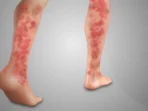Every day, we all run the risk of contracting a disease of some kind. We encounter illnesses including the common cold, allergies, the flu, pneumonia, joint problems, and more every day. We run the risk of shortening our lifespan every day because accidents or violent acts can happen to anyone at any time. All of our communities experience violence, and every day we all run the risk of becoming the next victim. Yes, you can spend your entire life telling yourself that something bad would never happen to you, but what will happen when it does? So, are you prepared to face reality? If you developed your strengths, you would be ready for the unforeseen or unavoidable as it is true that it may happen to you.

Healthy Aging and High Cholesterol
For one, having too much cholesterol can lead to numerous health issues. Your heart’s arteries might become blocked by cholesterol. Furthermore, unchecked cholesterol can result in severe heart attacks or a string of strokes.
How can my cholesterol be reduced?
It is unhealthy for you to have too much cholesterol in your body. But you have the ability to seize the initiative. Failure to take charge only causes issues. The issues will mount up and drain you until premature aging claims your life. By engaging in daily exercise and choosing the correct foods, you can regain control. Another step you may take to age healthily is to schedule routine doctor’s appointments. You will be prescribed medication by your primary care physician to help lower your cholesterol.
If you have high cholesterol, you need to eat healthfully and work out every day. Act right away to lower your cholesterol. Getting your cholesterol under control will take some time, but if you act now, it will happen. To keep your cholesterol under control, you should also schedule time for your interests, hobbies, and social interactions. Arteriosclerosis, which is the root cause of high cholesterol, becomes apparent. You can prevent strokes, heart attacks, and even death if you lower your cholesterol by taking action right away. To reduce cholesterol, find out more about statins. Additionally, giving up smoking will help lower your cholesterol. Additionally, by managing your cholesterol, you can reduce your odds of developing diabetes, a heart attack, obesity, and other conditions.
Remember that issues with high cholesterol can range from the very worst to the manageable. The LDL is the worst kind. Higher HDL cholesterol levels are beneficial. Your risk of a heart attack or stroke increases if these levels and triglycerides rise.
Which foods contain cholesterol?
Unless it says on the packaging that the item is cholesterol-free, all foods contain cholesterol. Certain foods contain more than others. Some of your bread contains cholesterol, just like your cooking oils and grease do. Both butter and eggs are foods that are particularly rich in cholesterol. The amount of cholesterol is listed on the back of the packages, which you must read.
What might occur if I have a high cholesterol level?
You must have a blood test from your primary care physician in order to determine whether your cholesterol is high. If you see your family doctor as you should, they will draw blood and check it. Your arteries will harden, though, which is one of the things that can happen to you if you’re high. This indicates that your body is producing too much cholesterol and fat. A result of 140 or 130 above 200 mg/dl is considered to be normal or average. You’ll be fine if you can sustain this level.
A buildup of cholesterol can stiffen the arteries. This implies that the heart won’t naturally pump because the blood won’t pass through to do so. The heart will beat faster than it should in an effort to keep you alive.
Since your heart doesn’t receive enough blood owing to blood clotting or blood vessel breakage, high diastolic cholesterol raises your risk of heart attacks. A stroke occurs when your brain receives insufficient blood due to decreased oxygenation brought on by blood clotting or blood vessel breakage. Since high cholesterol affects hemoglobin, it also increases your risk of developing diabetes. Go to your doctor for further information.
Many individuals fear having to face reality head-on. In actuality, when you stare reality square in the face, you are preparing to act when the time comes. For instance, by taking measures to protect your home from hurricanes or tornadoes, you are improving your quality of life since you will be ready if the worst happens. The same is true when thinking about healthy aging: if you take action now, you’ll be ready to handle any future challenges, such as illness, wrinkles, and so on.
On that topic, let’s talk about a few ailments or conditions that everyone may experience as they become older.
Your brain is a natural gift that contains dendrites, blood cells, tissues, cells, and more. All of these components travel from your brain to your central nervous system. (CNS) As you get older, your brain’s blood flow will slow down and your body’s various chemical levels will drop as they experience senescence, or aging-related change. This implies that as your CNS loses function, so will you.
Additionally, your eyes suffer when you start to age. The lens will harden as you age. The response of your retina to natural or artificial light could be diminished. Additionally, your students can begin to react more slowly.
How aging affects the mouth, ears, and sense of smell: As you get older, you could notice that your high-pitch hearing frequencies are less sensitive. Your nose might not be able to distinguish between different scents or fragrances. Additionally, because your tastes will change, you might not like the things you used to appreciate.
How aging impacts the heart: The heart is impacted by age. The rate of pulse acceleration decreases with age. Your heart and blood muscles will tighten and produce less blood. Additionally, your heart might no longer react as it once did to natural stimuli.
Your lungs will no longer be able to take in air and move it around freely like they previously could. Your blood won’t receive the same amount of oxygen with each breath as it once did. Your liver will change as you age. The size of your liver can shrink. It’s possible that your liver will receive less blood.
Your skin, immune system, metabolism, big intestines, kidneys, bladder, colon, and reproductive organs will all be impacted as you age and various aspects of your body alter. Since the prostate glands expand, a man’s reproductive organs will no longer operate as they should. Additionally, the man will stop producing testosterone at higher levels. Additionally, blood won’t flow to male organs like the penis anymore.
You will go through numerous changes as you age, so it’s time to acknowledge that it could happen to you too and take action.





